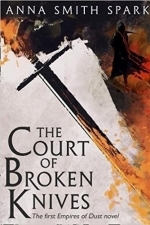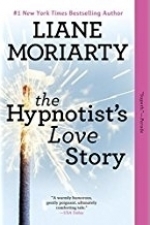
Eisenhorn: XENOS
Games and Entertainment
App
POCKET GAMER - 9/10 - "This is a rich and stunning third person adventure" APPLENAPPS - 4/5 -...
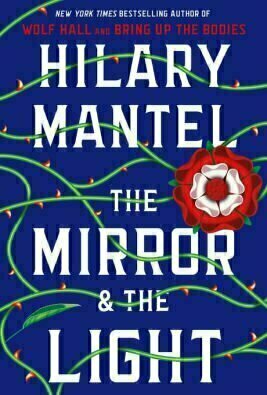
The Mirror & the Light
Book
“If you cannot speak truth at a beheading, when can you speak it?” England, May 1536....
Hazel (2934 KP) rated Just Another Liar [Audiobook] in Books
Jan 30, 2022
Three women from very different backgrounds join a dating website and all think they have met the man of their dreams - Dr David Kingfisher. They are all convinced he is 'the one' despite never having met him in person. None of the three know of the others existence until a Facebook post by one of them asking for help to find him after he disappears. Cue an investigation by the three but in their attempts to find him, they put one of their lives in danger.
The main characters are well developed with Denise being my favourite but Petra and Anna, not so much. The other characters weren't particularly likeable at all but they all had a part to play in the overall story. The pace is mixed - it ebbs and flows with a lot of the 'action' taking place in the last third of the book. The plot is relevant and topical and the vastly different lives of the three main characters is interesting.
The narrator is good and whilst there were some distinctions between the voices of the characters, I think it would have worked better if different narrators were used for the three main characters. That being said, Melissa did a good job particularly with the voice of some of the male characters where she captured their 'smarminess' perfectly.
Overall, a good book that works well in audio format.
Many thanks to HarperCollins UK Audio and NetGalley for my copy in return for an honest, unbiased and unedited review.
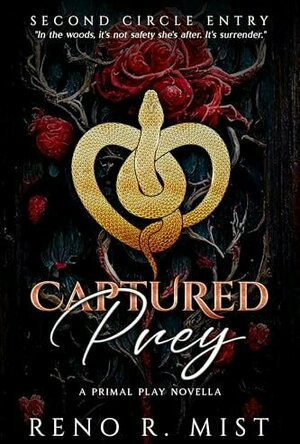
Captured Prey (Second Circle Entry #1)
Book
I want to be hunted…but not by just anyone. No – it must be by the monster I have secretly...
Primal Play Erotica Monster Romance
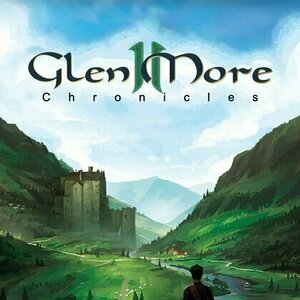
Glen More II: Chronicles
Tabletop Game
Glen More II: Chronicles is a sequel to Glen More, expanding the gameplay substantially compared to...
Ross (3284 KP) rated The Court of Broken Knives in Books
Aug 7, 2018
Not so here. I'll admit the tone took me a couple of chapters to get to grips with, but I am so glad I stuck with it. The lyrical poetry contained within the narrative is so good that it adds to the story being told, it puts some emotion into the storytelling, something that is so sorely lacking from many books in third-person narrative.
Descriptions of people, places, feelings, events take on a whole new level of tangibility so rarely felt in fantasy fiction (without going down the Stephen King route of describing everything, and avoiding the Robert Jordan horse/riding dress description pratfalls).
The only place this becomes an issue is at times in the action scenes. On occasion I had to re-read a passage to work out what had actually happened - while I enjoyed the words I had struggled to pick up on what had occurred.
The story itself is not overly elaborate and unfolds before you with little warning. It felt like a natural, flowing journey than a series of events loosely tied together. We have the gritty mercenary company en route to unleash hell on the Empire, the great priestess of the God of living and dying (who has to sacrifice someone every few days to ensure life and death continue to operate properly) and we have the political manoeuvrings of the high lords within the Empirical council. This is all weaved together in the first third of the book to an excellent, surprising conclusion (in what many authors would have filled a whole book with ad nauseum), with the remainder of the book being a journey through wild country while everyone double-crosses everyone else.
This is of the grim-dark sub-genre, which basically means everyone is a bit of a shit, and bad things happen to nice people. There are no heroes here. There are characters you come to rout for (or despise) but you know it is wrong to do so as they are all so nasty and flawed in so many ways, like humanity itself.
Don't be expecting a happy ending!

Brothers in Arms® 3: Sons of War
Games
App
Join the heroic MULTIPLAYER shooting action of World War 2! *IMPORTANT* Brothers In Arms® 3: Sons...
Gareth von Kallenbach (980 KP) rated Mr. & Mrs. Smith (2005) in Movies
Aug 14, 2019
The film stars Brad Pitt and Angelina Jolie as the title characters who are approaching their sixth year of marriage, though Mr. Smith seems to be convinced it has only been five.
Tedium has set into their suburban lives, and the couple has entered counseling in an effort to help their lack of communication. The story of how they met and various aspects of their lives with one another paints the picture of how much the flame has dulled after such an explosive start for the couple.
As routine has their home lives have become, one thing that has not changed is their work. Unknown to each other, the Smiths are actually assassins for competing firms. Both Smiths are convinced that their spouse works in other fields and manage to complete most of their missions during the day or night under the guise of work for the cover careers.
Things change when both agents are assigned by their firms to a mission where they end up encountering each other from a distance. Unsure of whom the person they spotted is, they are ordered to eliminate the person in order to protect their cover.
This begins a rapid series of events that, as anyone who has seen the trailer will realize, the Smiths will figure out that the person they have been seeking is their very own spouse. While this destination is inevitable to the plot is not a surprise, the trip leading up to it, and the whirlwind of events that follows this discovery, is what really makes this film such an enjoyable ride.
Naturally when the two uncover their spouse’s true identity, the instincts of their professions as well as their pent up frustrations come out in an orgy of passion and violence that leaves a trail of devastation. The various encounters between the Smiths not only escalate on the violence scale, but due to issue such as pride, reputations, and betrayal, the objectivity and impersonal nature of their work are abandoned.
I think Shakespeare put it best when he said that “Hell hath no fury like a woman scorned”, as the scenes of Jane Smith unloading her pent up fury are almost as hysterical as the segments where John Smith takes his turn at the plate.
A prime example of the films ability to mix action and comedy to perfection is the classic dance scene where the two attempt to disarm one another in an effort to get the upper hand. Pitt and Jolie dance and exchanges barbs, as they keep the beat and discard the weapons they find, as they plot to gain the upper hand.
The film did lose a bit of its amazing momentum about a third of the way in, before regrouping and bringing the film to an action packed and very satisfying conclusion. The supporting work of Vince Vaughn is very funny, but sadly his presence is limited. The films works very well because the chemistry between the two leads is very strong, as are the action and humor sequences. Without a doubt one of the best movies of the summer and one not to be missed
graveyardgremlin (7194 KP) rated Stray (Shifters, #1) in Books
Feb 15, 2019
*Werecats aren't done much, okay, pretty much at all.
*Paranormals rule (okay, so it's a lame reason and not always true - like in this case, but it's the only other thing I could think of)
Cons:
*Faythe isn't a great character; in fact, the more I read, the more I hated her - she's whiny, bitchy, manipulative, immature, obnoxious, and basically, she's just an all-around unpleasant person (plus I'm sure other adjectives I can't think of). She really doesn't deserve anyone around her; family or otherwise, namely hot guys.
*The plot is constantly stopped so the author can backtrack with history of werecats and what not - I'm not talking now and again, I'm talking it happens all the time! Ugh, enough! There needed to be a better way to do this, so that it actually flowed.
*First person narrative isn't right for what the author is writing - what with Faythe and the history.
*Do brothers and sisters actually act that way? I have two older brothers, and it is nothing like that. And I don't care that it's a werecat pack either.
*The whole deer hunting thing made me slightly sick. I'd rather the author had glossed over that if it absolutely had to be done.
*The whole concept was basically a rip-off of the (way, way better) werewolf books by Kelley Armstrong, especially Bitten.
*Even though it is fiction, the behavior of the werecats was more like wolves.
*I'm sorry but it's impossible to read someone that clearly. Nobody can read every single thought someone has by facial expressions or just because they know someone really well. Yes, there are ways to read people and there are experts in that field, and yes, sometime people can read other people every once in a while. But --- not the way Marc could read everything that went through Faythe's moronic head.
*The book was way too long, redundant, and needed major editing.
Overall:
I really wanted to like this, but I had to put it down after reading more than a third of it. I was very excited to read it because I love cats; it's just too bad it was overlong and had a horrible protagonist. I checked out Rachel Vincent's website to see if her sequels were going to feature someone other than Faythe, but sadly they are not. I'm glad I got this from the library and will not be looking for any other books from this author.
b.Young (97 KP) rated The Hypnotist's Love Story in Books
May 26, 2018
The Hypnotist's Love Story was well written and the character development was excellent.
The book is told in two view-points, Ellen's in third person and Saskia's in first person. Suspense and mystery are woven throughout, albiet mildly, and it gives the book a less than romantic feel at some points
The story begins with Ellen, who is a rather sucessful hypnotherapis. She is in her late thrities and single. Although she is quite happy with her life, she longs to have a family of her own. Her past three long-term relationships were less than satisfying so she resorts to using a dating site on the internet to meet someone new.
Enter Patrick. A handsome land surveyor who owns his company and has an 8-year-old son, Jack. His past is much more complicated. He is a widower with an ex-girlfriend that has been stalking him for 3 years!
When Patrick tells Ellen about Saskia, his stalker, she is somewhat intrigued instead of frightened.
Even though Elln seems to be okay with the baggage of a dead wife and a stalker, Patrick and Ellen have a difficult time being a new couple falling in love and their relationship is strained from the get-go.
As Ellen and Patrick are mid-flight to a weekend getaway, Ellen realizes that she has allowed herself to divulge their location to Saskia unknowingly due to the fact that Saskia has been a client of Ellen's while using a false name.
When Ellen decides to reveal big news to Patrick, he does something completely unexpected and Saskia puts herself in the middle of it all.
As the stalking incidents escalate (they are never violent), Patrick's demeanor deteriorates and Ellen is put on edge.
Throughout the book, we learn the reasoning behind Saskia's stalking and by the end of the story, I felt almost sorry for her. Almost. Because through it all, she chose to do the things she did and threw out all other options to persue her failed relationship.
I am relieved to say that it does eventually end with a HEA. I only say that because although I was reading a romance novel and expected an HEA, the suspensful undertones of the book led me to think differently at times.
![Just Another Liar [Audiobook]](/uploads/profile_image/89f/7973ada8-8c82-45a8-a625-75c11ae0e89f.jpg?m=1643549499)
